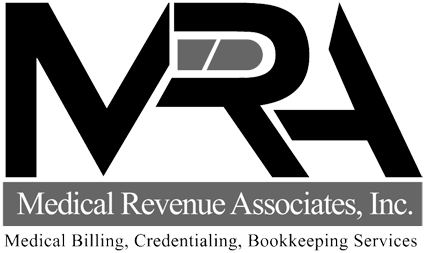One of the most crucial aspects of managing a medical practice is to ensure that the finances are in order, something that is critical for being able to maintain the operation of the medical practice. Revenue cycle management (RCM) is another terminology for Accounts Receivable, or the collection of insurance carrier and patient payments which… Read more »
Author: Medical Revenue Associates Inc
Common Questions About Medical Credentialing
Medical credentialing and contracting is required for a provider to receive payment for their services. Medical credentialing is a complicated process that takes time and precision. There are many steps and doing just one thing incorrectly can upend the process. Here are some of the most commonly asked questions about medical credentialing: How long does… Read more »
What is Medical Credentialing?
Ensuring a healthcare provider has the proper education, training, certification and credentials not only makes certain that they are qualified to provide care, but it is also integral to being “in-network” with health insurance companies. Credentialing makes this happen. But what is it and how, exactly, does it work? Here are the details: Credentialing—The Basics… Read more »
Medical Revenue: Planning Your Service Charges with the Medicare Physician Fee Schedule in Mind
The Medicare Physician Fee Schedule (MPFS) applies to healthcare provider services such as office visits, lab work, types of therapy, surgical procedures and more. It gives providers guidelines on what Medicare will cover for services and how much it will reimburse the provider. Medicare Physician Fee Schedule Rates The rates are determined based on input… Read more »
Credentialing Services: Adding or Removing a Physician from Your Carrier Profiles
Being a practice within a managed care carrier network or multiple carrier networks means inevitably having to add or remove a physician from your carrier profile. This process involves an application process (completing the 30-page Council for Affordable Quality Healthcare (CAQH) questionnaire) for a specific network and must be completed whenever there is a provider… Read more »
Credentialing Services: Benefits of Joining a Carrier Network
Taking the time to join an established provider network can sound like a huge drain on office resources but doing so can be a major benefit for healthcare providers in the practice, as well as your patients. In-network vs. out-of-network Most patients with insurance have the option of choosing a doctor or healthcare provider that… Read more »
What to Know About Credentialing and How Long Does the Process Take?
Being a credentialed practice helps you get “in-network” with insurance companies. Patients will almost always look for providers that readily accept their insurance, as it usually more cost-effective for them and makes the payment process easier. However, becoming a credentialed practice is not necessarily a brief and easy thing to do. The process usually takes… Read more »
How Inappropriate Unpaid Claim Follow-Ups Affect Your Bottom Line
Following up on unpaid claims is a vital part of the collection process. But if you do it the wrong way, or with no sense of urgency, it can result in lost revenue or patients being confused and frustrated by your billing process. Analyzing your collections process for inefficiencies, gaps, or missed opportunities can ensure… Read more »
Questions to Ask Your Medical Billing Staff to Maximize Patient Collections
The goal of any medical billing department is to collect the maximum amount of patient billing. So how do you make sure your staff is doing what they can to maximize revenue for your practice? Is the process clear and straightforward? Creating and documenting a thorough collection process ensures each staff member knows their responsibilities…. Read more »
SGR (Sustainable Growth Rate) delays – again!
Why isn’t Congress supporting our healthcare providers? Every year we go through this agonizing time frame of facing a 20% cut in Medicare payments, while Congress constantly bypasses their responsibility. Congress can’t be penalized for their lack of appropriate actions, so they do what is in their best interests. Typical political selfishness. Our government expects our healthcare providers… Read more »
